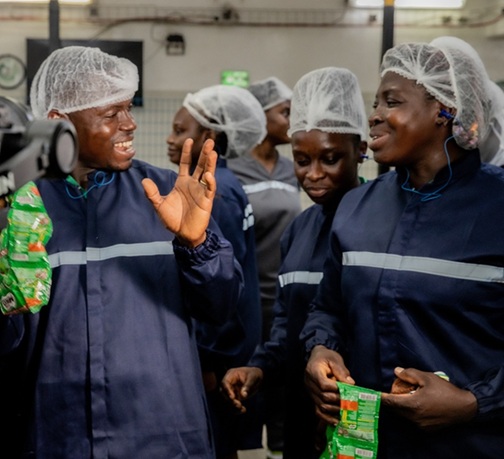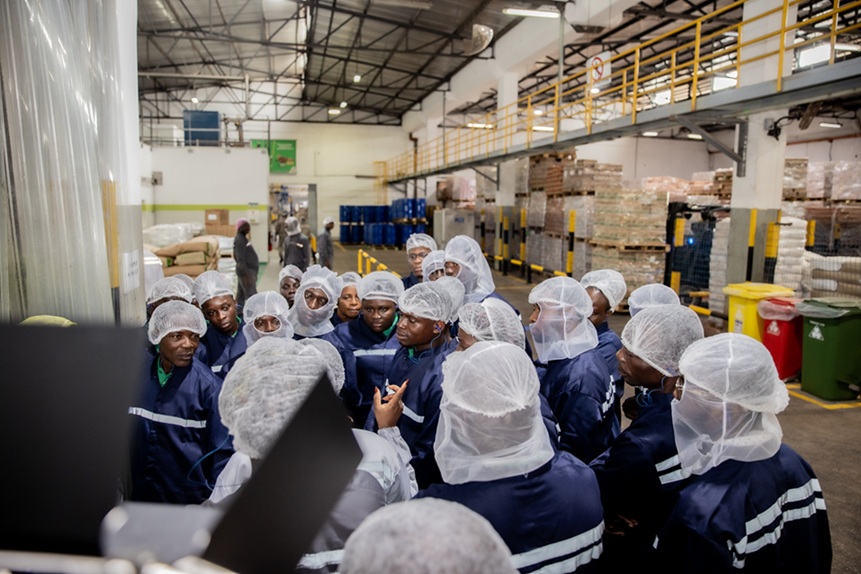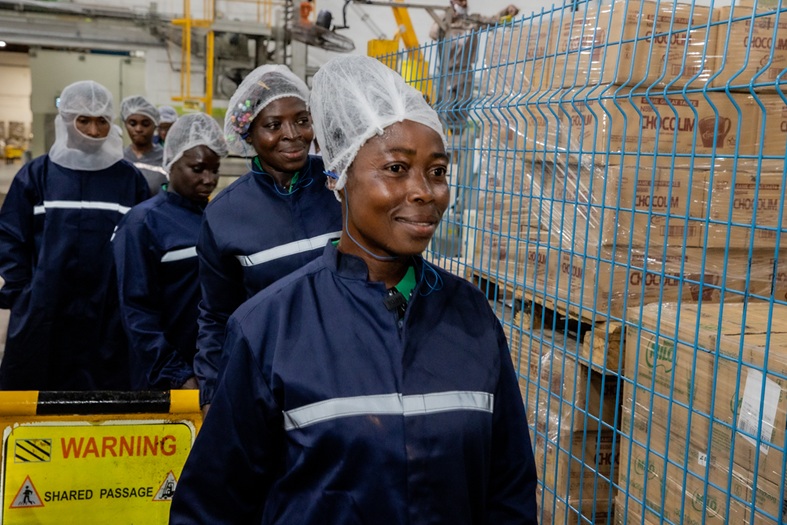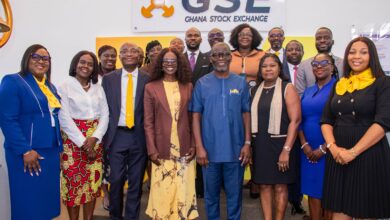Farmers Experience Cocoa-to-Milo Journey at Nestlé’s Tema Factory

Food and Beverage Manufacturing company , Nestlé Ghana Limited has reinforced its commitment to cocoa farmers with a groundbreaking initiative that brought 15 farmer representatives from various cocoa-growing communities in the Ashanti region to tour its Tema factory.

The visit, which was the first of its kind, allowed farmers to see firsthand how their cocoa beans are transformed into globally recognized products like Milo.
Shared Value Beyond the Farm
Corporate Communications Manager of Nestlé Ghana, Deborah Kwablah, described the engagement as central to the company’s philosophy of creating shared value. She explained that Nestlé’s work with farmers goes beyond sourcing raw materials, focusing instead on building sustainable livelihoods through agronomic training, infrastructure provision, and social interventions.
“We train farmers in the right agronomic practices so they can increase yields and improve their livelihoods. When they get better returns from their land, Nestlé also benefits by securing the quality cocoa we need for our products. That is why we call it shared value—it’s about creating opportunities for both the farmer and the business,” Ms. Kwablah said.

Investments in Community Infrastructure
She noted that Nestlé’s support extends well beyond the farm. In several cocoa-growing communities, the company has built and rehabilitated schools, provided toilet facilities, and commissioned boreholes to improve access to safe drinking water. Just this year, Nestlé commissioned 15 boreholes and five new schools, while continuing to expand investments in health and education infrastructure.
“These interventions are not charity—they are investments in sustainability. If farmers have access to water, schools, and healthcare, they can dedicate more time to farming and ensure their children are educated for the future,” Ms. Kwablah added.
Farmers Share Impressions
The farmers, visibly impressed by the visit, shared glowing feedback. For Mr. Anthony Owusu from Adansi Fumesekitua, the tour was an eye-opening experience.
“This is the first time I have seen how cocoa from our farms ends up in Milo and other Nestlé products. I am taking this knowledge back to my community, so other farmers can understand the value of what we produce,” he said.
Another farmer, Mr. Thomas Oduro, said the experience exceeded his expectations.
“When I first entered the factory, I thought I was in the wrong place. But after the tour, I felt at home and overly impressed. Today, I feel overjoyed and confident about the role we farmers play in creating these world-class products,” he remarked.
Towards Annual Engagements
Nestlé intends to make the factory visit an annual feature, giving farmers a sense of ownership and pride in the value chain. “These farmers are not just farmers, they are leaders in their communities who train others in proper agronomic practices. Bringing them here motivates them, and through them, thousands of other farmers benefit,” Ms. Kwablah explained.
A Sustainable Model for Ghana’s Cocoa Sector
For Nestlé, the initiative demonstrates how aligning corporate objectives with farmer welfare can build stronger, more resilient supply chains. By investing in both productivity and social infrastructure, the company is strengthening its raw material base while empowering rural communities.
This model offers valuable lessons for agribusiness in Ghana. Family farms, which dominate the cocoa sector, can thrive if businesses treat sustainability and farmer welfare as part of their core operations rather than side projects.



